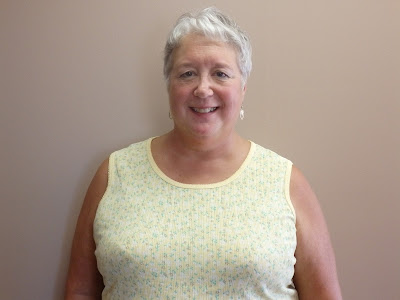Bill Bertram, Ed Kennedy, Jo Lucas, and Rusty Roberts were the candidates for 2 board positions, serving 3 years beginning on 1-1-2016. Bill Bertram and Jo Lucas were the top 2 vote getters. Congratulations to them, and sincere thanks to all four for their interest and commitment to the conservation of natural resources in Guernsey County!
Guernsey SWCD
Annual Meeting and Election
On Wednesday,
October 29th the Guernsey Soil and Water Conservation District held its 73rd annual
meeting banquet and election. The
meeting was held at Mr Lee’s Restaurant. Bill Bertram and Jo Lucas were elected
and will serve a three-year term beginning January 2015 on the board which
provides direction, oversight, and fiscal accountability to the Soil and Water
Conservation District. Board members
serve on a volunteer basis. Current board
members include Bill Bertram, Ken Ford, John Enos, Myron Dellinger and Steve
Douglass. The special guest for the
evening was Abraham Lincoln, who regaled the crowd with stories from his
presidency. He ended the evening with
the Gettysburg Address.
During
the annual meeting, the Co-operator of the Year award was presented to Celeste
and Brent Mnich. The Guernsey SWCD
partners with Farm Credit, and USDA-NRCS to recognize co-operators who have
shown a commitment to conservation of natural resources. The Mnichs were presented with a sign,
provided by Farm Credit Services.
The
Minchs have worked with the district over the past few years to improve their
property for the benefit of the livestock as well as the environment. They have installed pressurized watering
facilities to provide water directly to their pastures. They have fenced out both sides of their
stream to avoid erosion and livestock waste contamination of the stream, and
installed 2 stream crossings. Still to
be completed are a feeding pad, access road, and more fencing to divide their
pastures to better manage cattle grazing of their pastures.
The
Minchs have not yet seen the full effects of what they have added to their
farm, but in the next few years, both their cattle and their land will benefit
from these practices. In the mean time,
they are attending every educational program provided by the district and by
OSU extension in an effort to learn more of how to better manage their land.
The
second award of the evening, The Friends of Conservation, went to the Hodges
family, which has a long history of assisting the district in its conservation
efforts. Beginning with Bob Hodges, who served on the board from 2004 to 2009,
and his wife, Dee, who served on the auxiliary board and volunteered her time
for children’s education programs, the family’s service spans 3 generations. The district was near and dear to Bob’s
heart, especially Moore Memorial Woods and the Conservation Day Camp the
district has held for children each summer since 1985. When Bob passed away in August of 2012, his
family honored that commitment by asking that donations be sent to the district
to support that education program. The
district recently honored Bob’s memory with a park bench at the woods.
Bob’s
son Bruce and his wife Anna have taken on the farm now that Bob is gone. While Bob was still with us, he hosted a
training for Sanitation Engineers in the surrounding counties, where a soil pit
was use to teach suitability of different soils for septic systems. This summer, Bruce and Ana again allowed the
district to dig a big hole on the farm – this time to hold a soils class for
area farmers.
Anna
and the kids – Beth, Katie, Karen, and now their youngest, Patrick, have helped
for several years with conservation camp.
Anna is so creative and teaches crafts each year, and the girls are
essential to the camp as counselors who lead the kids and keep them in
hand. Patrick has enjoyed attending the
camp, and is looking forward to taking on his new mantle as a counselor.
The
Guernsey Soil and Water Conservation District is a political sub-division of
the State of Ohio and covers the entire county.
Soil and water conservation districts were first formed in the 1940's
when concerns of soil erosion and the loss of our most productive soils became
apparent after the Great Dust Bowl. Local citizens gathered together to form the
conservation districts to educate and provide assistance to landowners in order
to reduce soil erosion to tolerable limits.
Conservation Practices such as contour strips, no-till crops, and
grassed waterways have had a great impact on reducing soil erosion.
Over
the years conservation districts have evolved to include issues around land
use, water quality, forestry and wildlife.
They work with landowners, land users, other governmental agencies, and
elected officials to solve natural resource concerns. Your conservation district can be a wealth of
information. The mission of the Guernsey
Soil and Water Conservation District is to promote through education and
technical assistance the sustainable use of natural resources for the benefit
of present and future generations.













